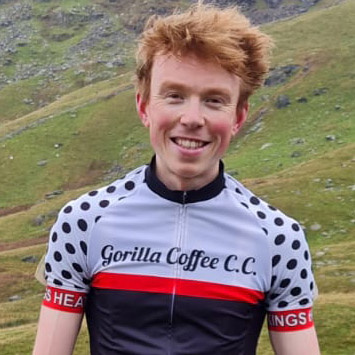Scott claims its new Plasma RC TT is “the fastest bike” it has ever made, beating its predecessor by 33 seconds over 40km at the same power output.
The Plasma RC TT produces less drag at 55km/h through greater integration, while improving stability at speed, according to Scott.
The Swiss brand says the time trial bike’s Syncros Creston iC TT system is the world’s most adjustable integrated time trial cockpit.
The official launch comes almost a year after we first spotted a new Scott time trial bike at the 2022 Giro d’Italia.
The Scott Plasma RC TT is available as a frameset and cockpit-only in sizes small (49cm), medium (54cm) and large (58cm) for €7,999.
It’s compatible with hydraulic disc brakes and electronic groupsets, and has maximum tyre clearance of 30mm, according to Scott.
Faster and lighter
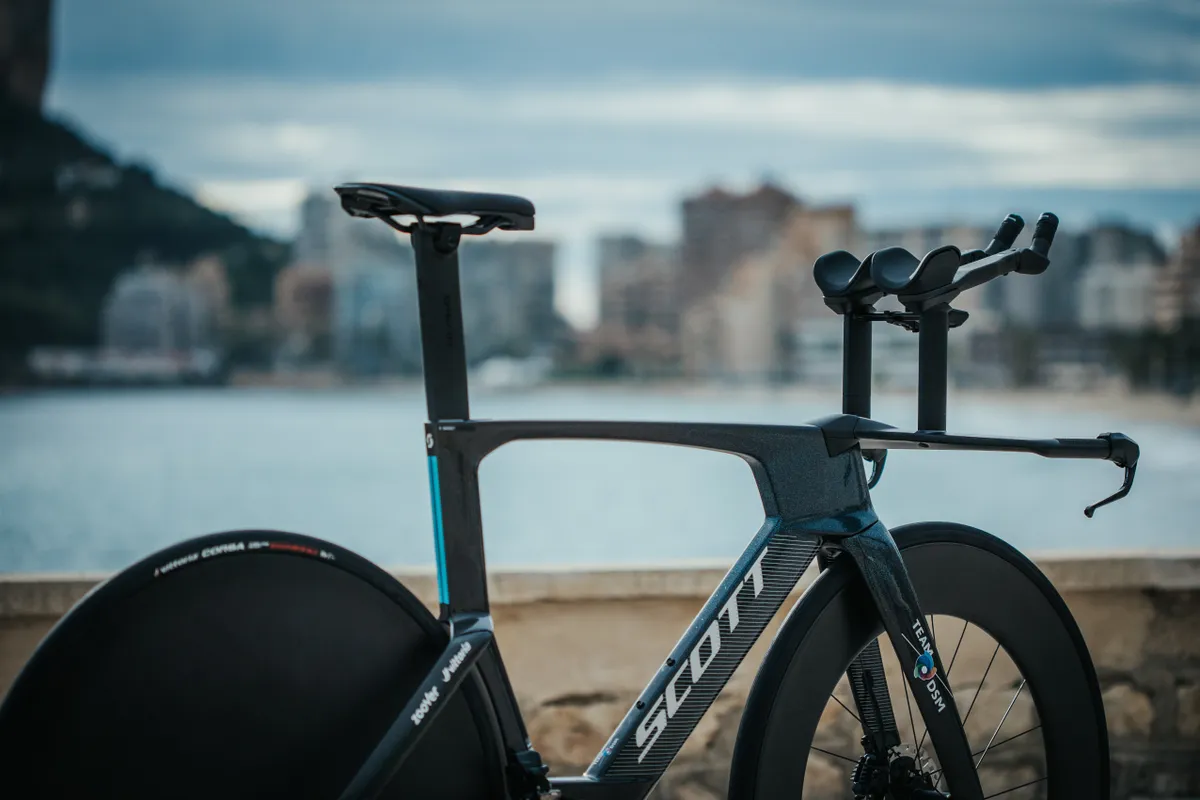
Scott says it used Computational Fluid Dynamics (CFD) with help from aero experts Drag2Zero to identify the most efficient tube shapes.
It then conducted wind tunnel testing on a modular version of the bike. Scott says its testing revealed a shorter seat tube produced a two-watt efficiency saving when a rider was on the bike, despite a longer seat tube being more aerodynamic without a rider.
The finished product is typical of modern time trial bikes, such as the Pinarello Bolide, although it also bears a strong resemblance to the brand's latest aero road bike, the Scott Foil RC.
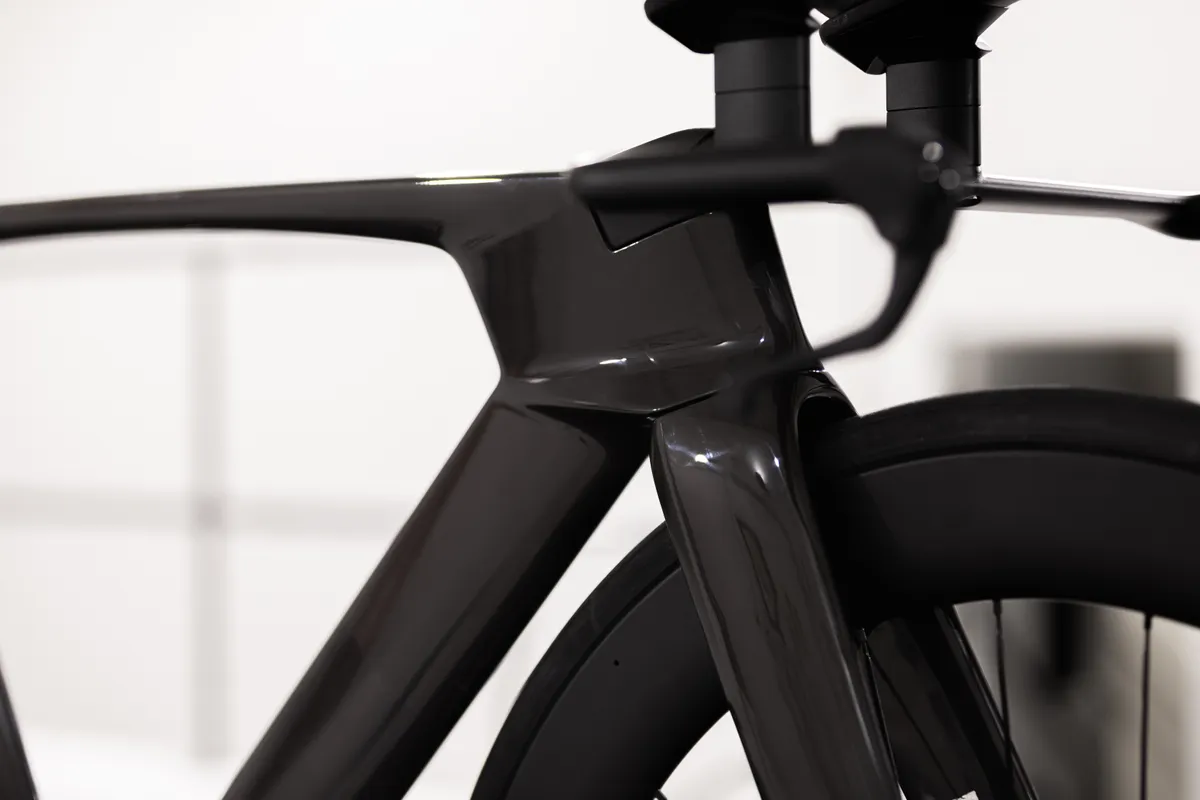
Deep truncated aerofoil tubes are paired with dropped seatstays and an aero seatpost. However, the narrowness of the Scott Plasma RC TT’s head tube stands out (more on this later).
Besides being more aerodynamic, the brand claims the new Plasma RC TT frameset is 12 per cent lighter than the previous version.
Scott claims the Plasma RC TT is 33 seconds quicker over a 40km time trial compared to the previous version, when ridden at an identical power output.
Scott says that figure was calculated using real-world testing, rather than just race simulations.
More stable geometry
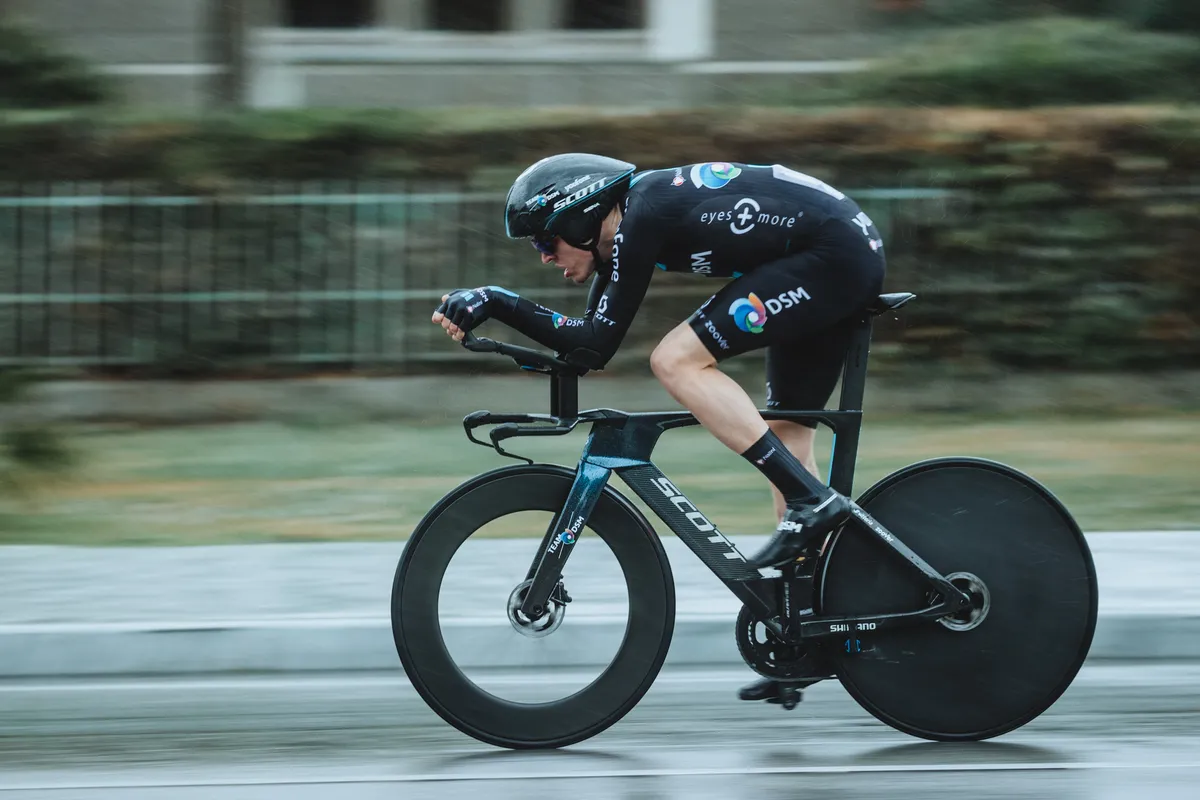
Scott says it shortened the RC Plasma TT’s fork offset and increased the trail by 5.2mm in order to slow the steering and make the bike more stable at speed.
Although this geometry change doesn’t deliver immediate benefit in the wind tunnel, Scott claims a rider can stay in their most aerodynamic position for longer on a more stable bike.
Greater integration
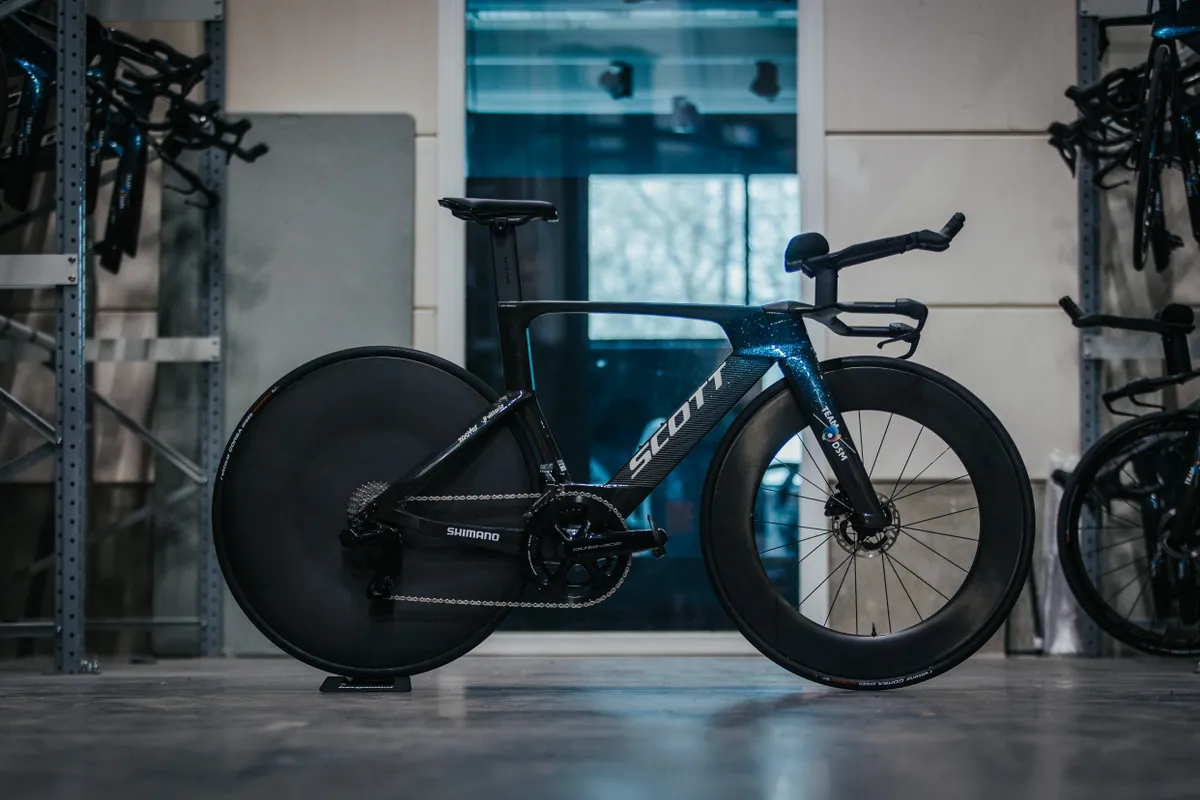
As we noticed last year, the Scott Plasma RC TT has a very slim head tube.
The brand says its patented slotted headset design allows cables to run directly through the headset.
This removes the need for clearance for the cables to pass around the steerer and allows the use of a smaller upper bearing, according to Scott.
Therefore, the head tube can be narrower than previously possible, which Scott claims reduces drag as it lowers the bike’s frontal area.
The brand says this design also makes it easier to dismantle the fork and cockpit, for example when flying with your bike, because the cables do not need to be disconnected.
Customisable cockpit
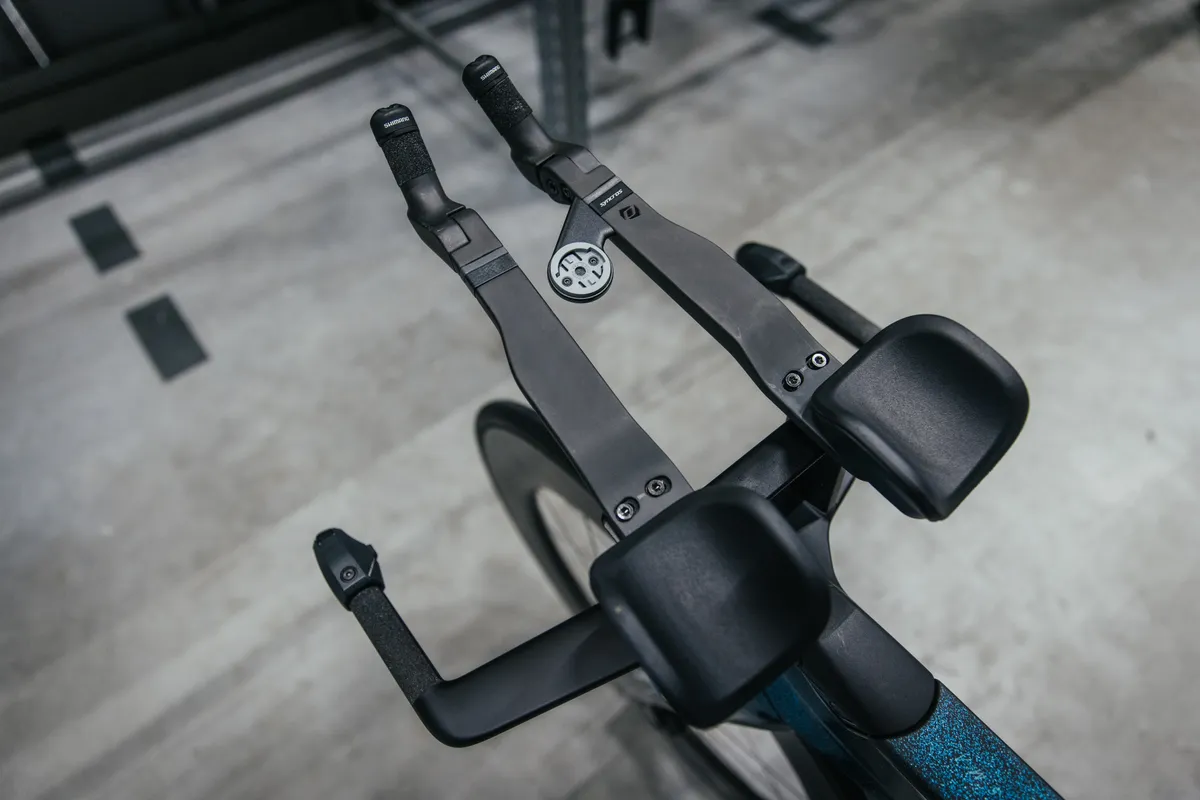
Scott says it analysed bike fit measurements from the Team DSM men’s, women’s and junior teams to create “the most adjustable integrated time trial cockpit on the market”.
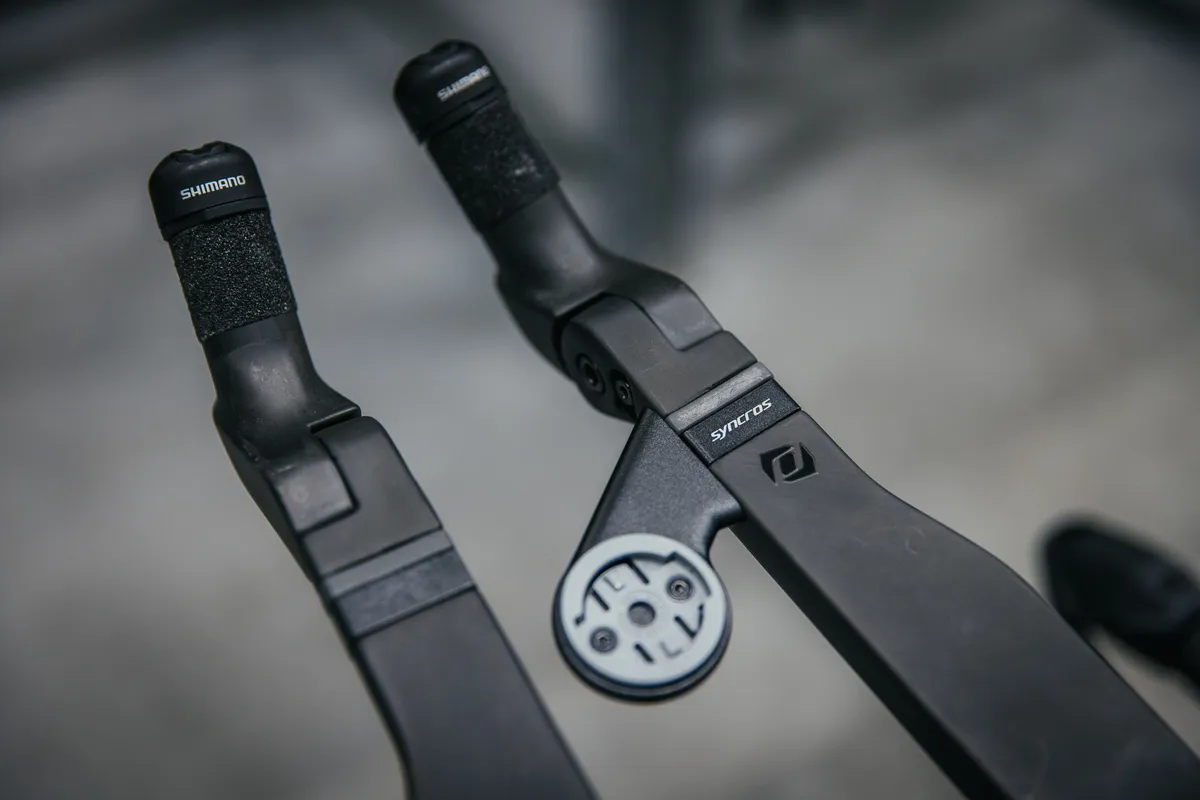
The Syncros Creston IC TT system has adjustable and interchangeable parts that enable riders to finely tune the width, height, length and angle.
According to Scott, this enables all riders to find their most aerodynamic, physiologically efficient and comfortable position within the latest UCI technical regulations.
For example, the stem comes in three different sizes (85, 105 and 125mm).
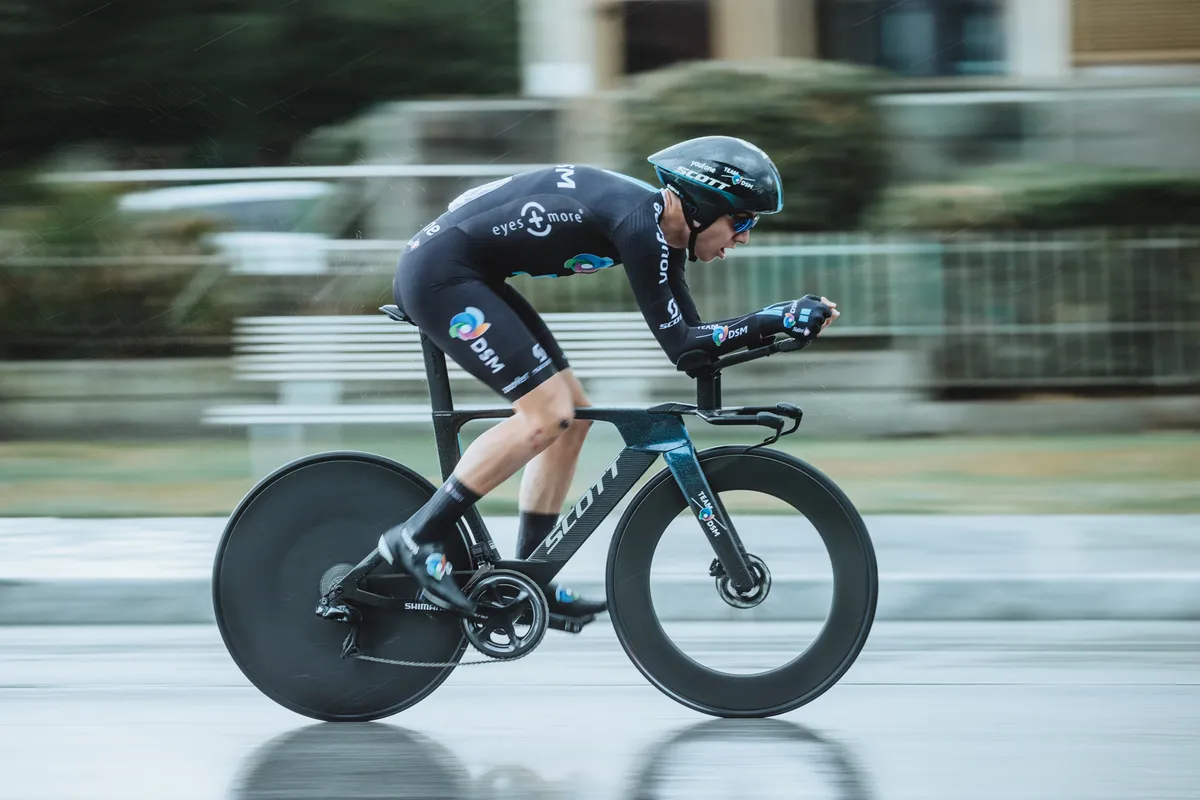
The stack height of the armrests can be raised by up to 145mm to suit different degrees of hip flexibility and a rider’s individual time trial positions.
The vertical angle of the extensions can be adjusted from horizontal up to 15 degrees, while the grip angle is adjustable from 13 to 53 degrees to find the perfect hand position.
The position of the arm pads can also be adjusted for comfort. The extensions can be lengthened or shortened by up to 30mm to allow for different arm lengths.
The extensions can be adjusted laterally by up to five degrees to change hand spacing.
Scott Plasma RC TT spec
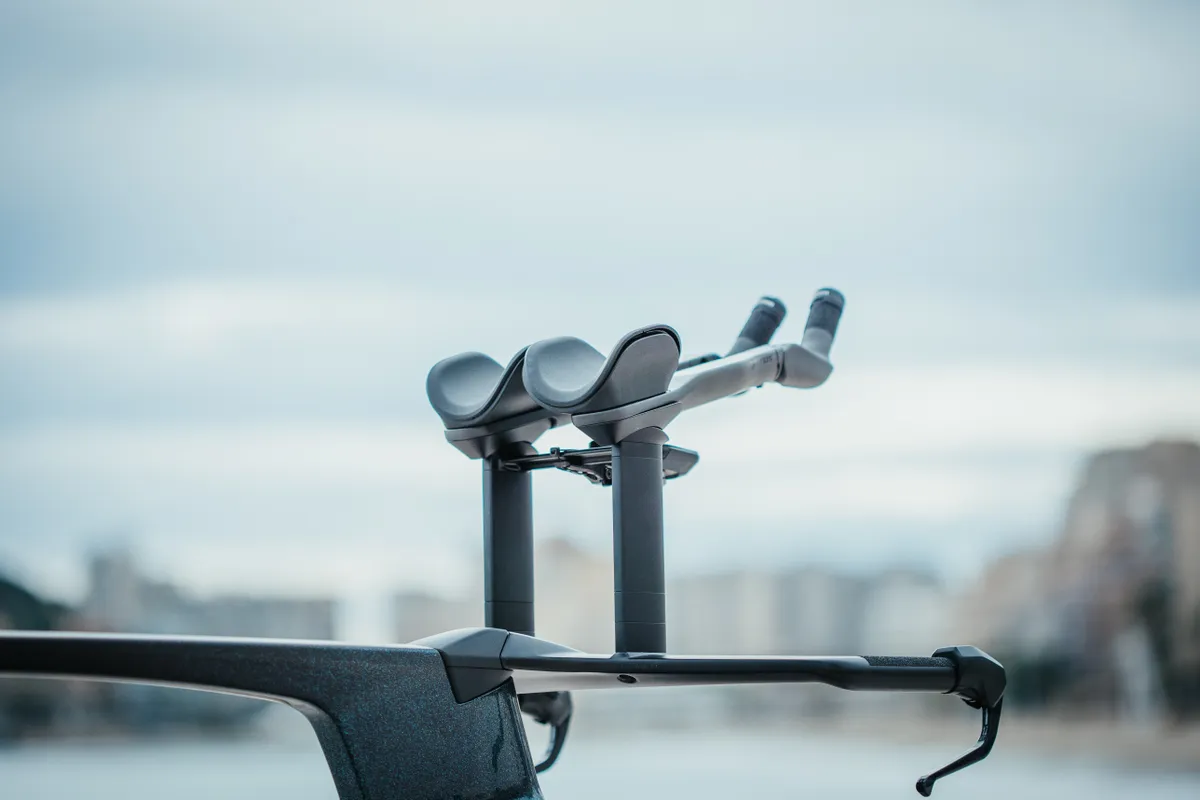
Scott says Romain Bardet, the Team DSM GC contender, has been riding the Scott Plasma RC TT with a Shimano Dura-Ace Di2 R9200 groupset and finishing kit from Scott’s house brand Syncros.
Frame: Scott Plasma RC TT
Rear derailleur: Shimano Dura-Ace RD-R9250
Front derailleur: Shimano Dura-Ace FD-9250 Di2
Shifters: Shimano Dura-Ace ST-R9180
Remote shifter: Shimano Dura-Ace SW-R9160
Brakes: Shimano Dura-Ace BR-R9270 hydraulic disc
Rotors: Shimano RT-MT900 140mm
Crankset: Shimano Dura-Ace FC-R9200 Power meter Hollowtech 54/40T
Cassette: Shimano Dura-Ave CS-R9200 11-30t
Chain: Shimano Dura-Ace CN-M9100 12-speed
Handlebar: Syncros Creston iC TT
Pedals: Shimano Dura-Ace PD9100
Seatpost: Syncros Duncan SL Aero 15mm
Head unit: Wahoo Elemnt Bolt
Saddle: Syncros Belcarra V Tri Firm
Tyres: Vittoria Corsa Speed 700x25c
